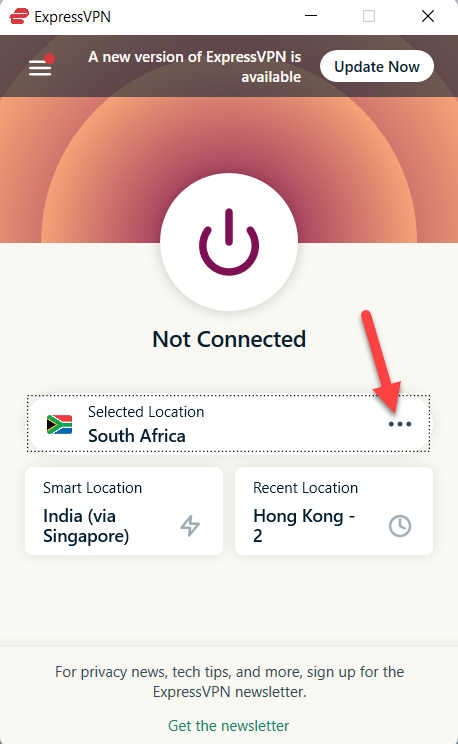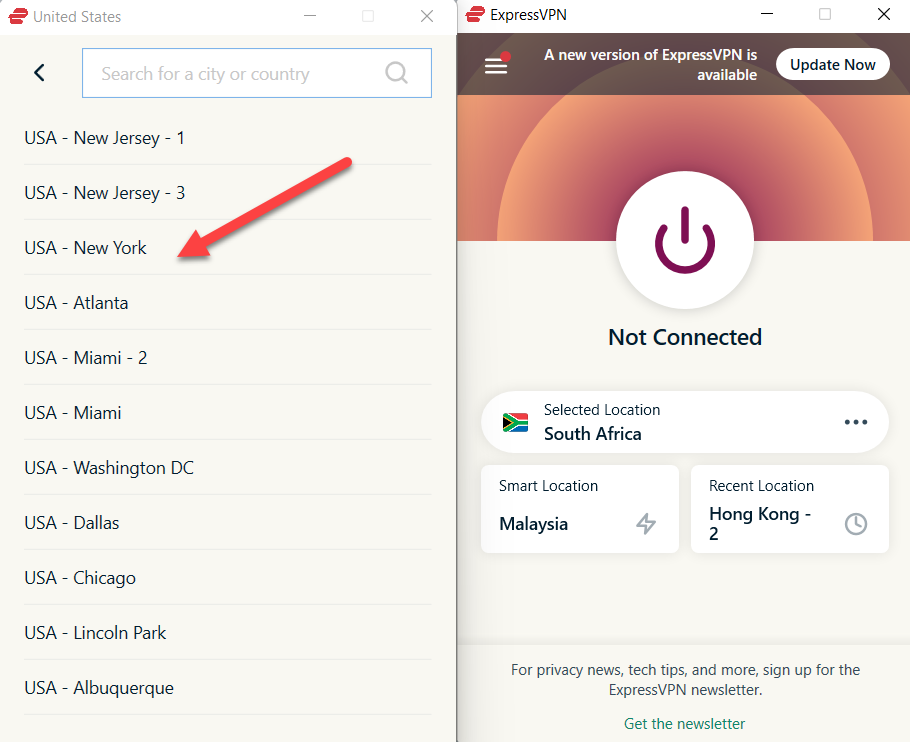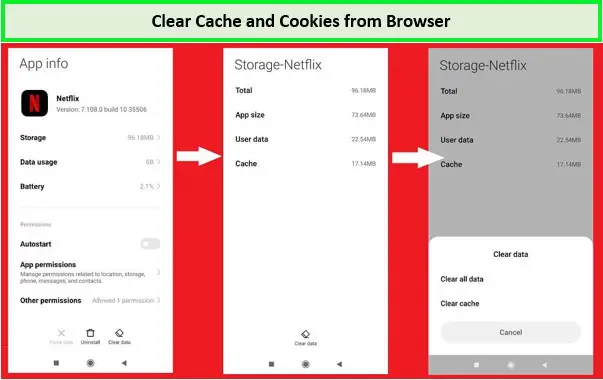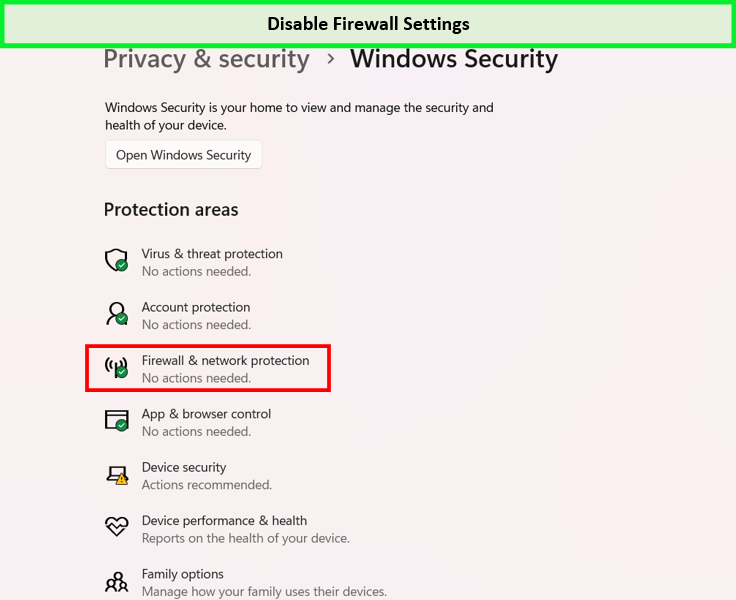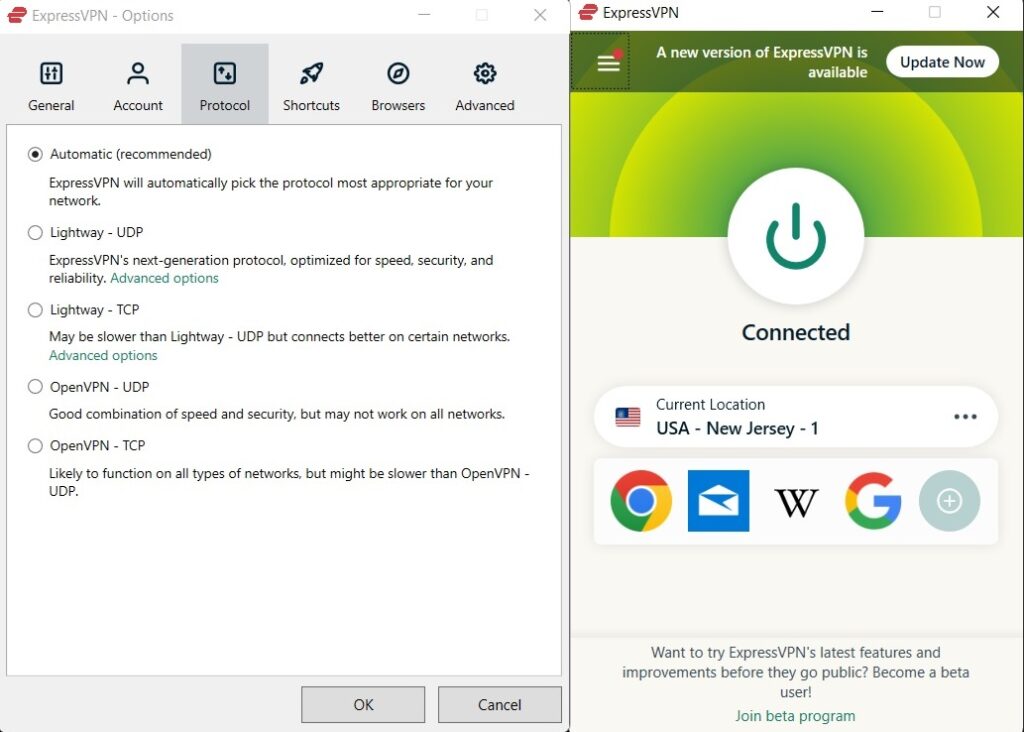
A reliable VPN allows you to access geo-restricted websites, streaming platforms, and web applications in Turkey. However, if you frequently find your VPN not working in Turkey, the issue can be attributed to various factors.
The most frequent challenge while using VPN in Turkey is establishing a consistent and reliable connection, along with maintaining uninterrupted internet connectivity. Another potential issue involves encountering proxy errors when trying to access specific online websites or services.
Furthermore, you may also find difficulties when trying to send emails or engage in other online tasks. It’s worth noting that a range of technical complications can emerge when using a VPN in Turkey, but fortunately, there exist numerous solutions in order to resolve these concerns.
In this guide, we will outline different solutions for you to address the Turkey VPN not working problem. The most reliable way to say goodbye to this annoying issue is to sign up for ExpressVPN, which is the best VPN for Turkey.
VPN Not Working in Turkey – Quick Fixes
Your VPN’s malfunction in Turkey can stem from different causes, yet the majority of these problems can be traced back to a handful of common issues. Before we delve into our detailed guide, here are five quick fixes to solve VPN not working in Turkey.
- Change the server: When you change the server it mostly resolves the issue of banned IP addresses by assigning you a fresh IP address in a different location.
- Clear your browser cache and data: Deleting the cache and browser data can resolve problems with your VPN connection by removing your stored location and IP address information.
- Allow your VPN through a Firewall: Your firewall might incorrectly flag your VPN application as a threat, despite this being inaccurate. As a result, it can block the VPN from connecting.
- Change to a different protocol: The VPN protocol manages your internet traffic through its remote servers, and these protocols utilize ports that could be restricted by the government of Turkey.
- Change to a better VPN provider: If none of the above solutions is working, it’s time to switch to a premium VPN service provider. like ExpressVPN.
Jump to our section of FAQs to get answers to your most pressing queries.
Detailed Guide to Fix VPN not Working in Turkey [Updated – 2023]
Getting frustrated due to VPN connectivity problems, we’re here to reassure you that effective solutions are within reach. Let’s embark on a comprehensive guide tailored to address and resolve the issue of your Turkey VPN not working correctly.
Change the server
Different VPN servers can have varying levels of success in bypassing Turkish restrictions. If your current server isn’t working well, switch to a different one within your VPN provider’s network. Look for servers optimized for overcoming censorship.
Different servers have different levels of traffic and may be more successful in bypassing Turkish restrictions. A server with fewer users might provide better performance and higher chances of successful connectivity.
Here’s how you can change the server on your VPN:
Clear your browser cache and data
Over time, browsers accumulate temporary files, cookies, and data that can impact your VPN’s performance. Clearing these files ensures a clean slate, potentially resolving issues related to cached data conflicting with VPN connections.
VPN issues might sometimes be related to your browser’s cache and cookies. Clearing these temporary files can help resolve connectivity problems. In your browser settings, find the option to clear cache and cookies, and then restart your browser.
Allow your VPN through a Firewall
Firewalls are designed to block potentially harmful traffic, which can inadvertently affect VPN connections. By creating an exception for your VPN app, you’re allowing it to bypass the firewall’s restrictions and establish a secure connection.
Firewall settings can sometimes block your VPN’s connection. Make sure your firewall isn’t obstructing your VPN traffic. Access your computer’s firewall settings and create an exception for your VPN app to ensure uninterrupted connectivity.
Change to a different protocol
Different VPN protocols use distinct methods of encryption and transmission. Some protocols might be more effective in circumventing Turkish censorship measures. Experiment with protocols like OpenVPN, IKEv2, or others supported by your VPN provider.
VPN protocols determine how data is encrypted and transmitted. Different protocols can have varying degrees of success in evading censorship. If current protocol isn’t working well, they should switch to an alternative one offered by their VPN provider.
Change to a better VPN provider
If your current VPN constantly struggles to bypass Turkish restrictions, consider switching to a VPN with a proven track record of success in this region. Look for user reviews and expert opinions on VPNs that excel in overcoming censorship.
If you’ve tried various solutions and still face persistent connectivity issues, it might be worth considering a different VPN provider. Look for reputable VPNs known for their ability to overcome Turkish restrictions and offer stable connections.
ExpressVPN – Best VPN for Turkey
Key Features:
- Global Reach: Presence in 105 countries, with a server in Turkey.
- Speed Excellence: Averages 89.42 Mbps on 100 Mbps connection.
- Ironclad Security: Shields against leaks, AES 256-bit encryption, kill switch.
- Streaming Unleashed: Unblocks HBO Max, Netflix, BBC iPlayer, and more.
- Confidence Guaranteed: 30-day money-back assurance.
With an extensive network of over 3000 servers located in 105 countries, ExpressVPN guarantees dependable and swift connections across different locations. ExpressVPN Turkey servers are fast and reliable, allowing you to connect to the local content easily. Renowned for its rapid and steady speeds, ExpressVPN is one of the best streaming VPNs and also helps you in torrenting and online gaming.
ExpressVPN can bypass geographical limitations on all popular streaming services and websites. You can easily access Hulu, Paramount Plus, BBC iPlayer, Disney Plus, and Netflix with ExpressVPN in Turkey.
In terms of online security and data privacy, ExpressVPN provides exceptional security tools, such as AES 256-bit encryption, a stringent policy of not retaining user logs, a Network Kill Switch, and Private DNS, all designed to safeguard your data and privacy effectively. Based on ExpressVPN’s exceptional features we could easily say that ExpressVPN is also the best Free VPN Turkey due to its 30-day free trial
As far as the ExpressVPN speed test is concerned, it recorded a download speed of 89.42 Mbps and an upload speed of 84.64 Mbps on a 100 Mbps connection.
You can grab an ExpressVPN subscription for just $6.67/mo - Save up to 49% with exclusive 1-year plans + 3 months free. Every subscription plan is secured by a 30-day refund policy. Additionally, the service extends continuous customer support accessible through live chat and email around the clock ensuring swift aid and problem resolution, should you find ExpressVPN not working or any other technical glitch.
For a more comprehensive analysis, we recommend reading our detailed ExpressVPN review.
How does Turkey block VPNs?
If your VPN not working in Turkey that is due to VPN blockage as Turkish authorities employ various methods to impose restrictions and block VPNs, typically through collaboration with Turkish internet service providers (ISPs).
Primarily, they attempt to identify and blacklist VPN servers across the globe. Once identified, these servers are integrated into the ISP’s firewall, rendering the VPN ineffective. This process is resource-intensive and time-consuming, making it a less common occurrence.
The second approach to blocking VPN Turkey For American Users involves obstructing internet traffic that utilizes the ports commonly used by VPNs. By blocking traffic through these ports, the VPN becomes incapable of accessing the desired content.
Another technique employed by Turkish authorities centers around VPN protocols. Through the implementation of Deep Packet Inspection (DPI) technology, authorities can discern specific VPN protocols within online data. If a VPN employs one of these protocols, authorities can identify its usage and subsequently obstruct the connection.
In essence, Turkish authorities deploy a combination of strategies to curtail VPN functionality, aiming to maintain control over online access and content consumption.
Can I Use A Free VPN In Turkey If Premium VPN Are Not Working?
While it is technically possible to use a free VPN in Turkey if your premium VPN is not working, we do not recommend relying solely on free VPN services for several reasons. Free VPNs often come with limitations such as slower speeds, data restrictions, and potential security risks. They may not provide the same level of privacy and security as premium options.
If you still choose to explore free VPN alternatives, we recommend considering our list of recommended free VPNs for Turkey. However, it’s important to be cautious and understand the potential drawbacks associated with free services. Premium VPNs generally offer more robust features and better security, making them a more reliable choice for protecting your online activities.
VPN not working Guide for Other Countries For American Users
- VPN not working in El Salvador
- VPN not working in Botswana
- VPN not working in Afghanistan
- VPN Not working in Ecuador
- VPN not working in Zimbabwe
FAQs – VPN Not Working in Turkey
Why do VPNs not work in Turkey?
VPNs are not illegal in Turkey, still you may face VPN in Turkey not working . This happens as VPNS face substantial restrictions and often encounter connectivity issues. This is primarily due to Turkey’s stringent regulations on online censorship. The government’s strict control over internet access leads to the limitation of VPN usage.
The rationale behind the restriction lies in Turkey’s efforts to uphold its online censorship policies. VPNs serve as a means to bypass these regulations, allowing users to access content that may be censored by the Turkish government. Additionally, VPNs grant users an anonymous online presence, preventing Turkish authorities from monitoring their internet activities.
How do I connect to Turkey with VPN?
To connect to a server in Turkey using a VPN, you can follow these general steps:
- Choose a VPN Provider that offers servers in Turkey like ExpressVPN.
- Download and Install the VPN App for your device.
- Log in to your VPN account credentials.
- Connect to a Server in Turkey from the server location list.
- Confirm connection to the Turkish server and start streaming the content you like. If your VPN not connecting in Turkey, try deleting your browser cookies.
Which VPN works best in Turkey?
When seeking the optimal VPN for Turkey, ExpressVPN stands out as the top choice. It boasts an extensive network of obfuscated servers, ensuring both remarkable speeds and exceptional security measures. Alternatively, for those on a budget, NordVPN presents a more economical option while still delivering lightning-fast speeds. These options offer diverse solutions to cater to varying preferences and requirements when it comes to selecting the best VPN for use in Turkey.
Wrapping Up!
In simple terms, if you’re having trouble with your VPN not working in Turkey, there are a few things you can try to fix the problem. Navigating VPN usage in Turkey poses challenges due to governmental limitations and technical complexities.
Yet, individuals can tackle VPN concerns by exploring alternative providers, like ExpressVPN, modifying VPN protocols, and verifying their internet connectivity. Once these steps are taken, users can gain access to restricted platforms in Turkey, such as YouTube, Wikipedia, Facebook, and more.
